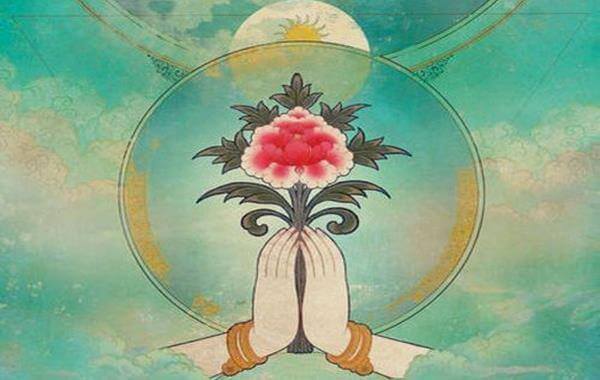The word karma is often mentioned in everyday life, in general we talk about karma when something negative happens to us, understanding it as a kind of revenge on life for something wrong that we did, however, in reality, this design is not so precise Therefore, it is recommended to know certain phrases to understand karma, that is, to better understand its meaning.
The word karma comes from Sanskrit and is essentially understood as an invisible and transcendent force that is satisfied with each of the actions performed by a person, this force gives rise to a chain of consequences and fundamentally represents the law of cause and effect.
- “Problems or successes are all the result of our own actions.
- Karma.
- La philosophy of action is that no one is the one who gives peace or happiness.
- Karma itself.
- The actions themselves are responsible for happiness.
- Success or others.
- -Maharishi Mahesh Yogi-.
The human being is free and can always choose how to act, from this election everything will depend on what happens in the future, there is no luck or bad luck, but the consequences of the actions, many of them only arrive after a long time. Time. Let’s look at some phrases to understand karma.
Let’s start with one of the beautiful phrases to understand the karma that brings us back to its essential meaning. This phrase is by Edwin Hubbel Chapiny and says, “Every action of our life touches a rope that will vibrate in eternity. “There is no action, however small, that has no effect on time.
This other phrase by Eckhart Tolle invites us to understand a truth that sometimes escapes us: we are living exactly what we should be going through and this manifests itself in everyday life. The phrase reads: “Life will give you all the experience that is most useful for the evolution of your consciousness. How will you know what experience you need? Simple: Is this the experience you’re living now?.
For his part, thinker Robert Louis Stevenson offers wonderful phrases to understand daily karma. One of them notes: “Do not judge every day by the harvest you harvest, but by the seeds you sow. “You can also see the essential aspects of karma: we harvest what we sow.
Our relationship with others is one of the most discussed aspects of the law of karma. This phrase, for example, reminds us that anyone who enters our lives does not do so by chance. She says, “We met for a reason, either it’s a blessing or is it a lesson?
Similarly, Elbert Hubbard reminds us that our relationships with others, good or bad, do not depend on chance. We build these bonds ourselves and give them the shape they have. The phrase reads: “We awaken in others the same mental attitude we have. have with them. “
This is complemented by a quote from Wayne Dyer that says, “The way people treat you is their karma; How do you treat them is yours?This invites us to focus on how we act, not how others act.
Another of these beautiful phrases to understand karma was written by a Buddhist teacher named Ma Jaya Sati Bhagavati, who says, “When you sow a seed of love, are you the one who blooms?” It’s a way of saying it gives us much more to give than to receive.
It is a phrase by Vera Nazarian and describes very well what karma is. He says: “Karma is not an inviolable engine of cosmic punishment. On the contrary, is it a neutral sequence of acts, results and consequences?This particular prayer clarifies the In fact, there is no punishment that comes from heaven for our actions, but it is these same acts that give rise to a chain of positive or negative consequences.
Something similar appears in this phrase by Deepak Chopra: “Karma, when properly understood, is only the mechanism by which consciousness manifests itself. ” Of course, it is the human being himself who is responsible for generating actions of punishment for himself. If someone acts incorrectly, a positive life dynamic cannot result. One evil leads to another, just as one good leads to another.
Another characteristic of karma is eternal repetition. It has to do with the fact that life brings us the same difficult experiences until we are aware of it. This phrase by Ben Okri describes it very clearly: “The law is simple. Every experience is repeated, do you suffer it until you feel it right and completely the first time?
Eastern cultures always offer us great lessons. The law of karma is no exception, although for some societies this has very profound connotations, which go far beyond the above, Westerners also give us valuable advice, it is up to us to take advantage of them.

